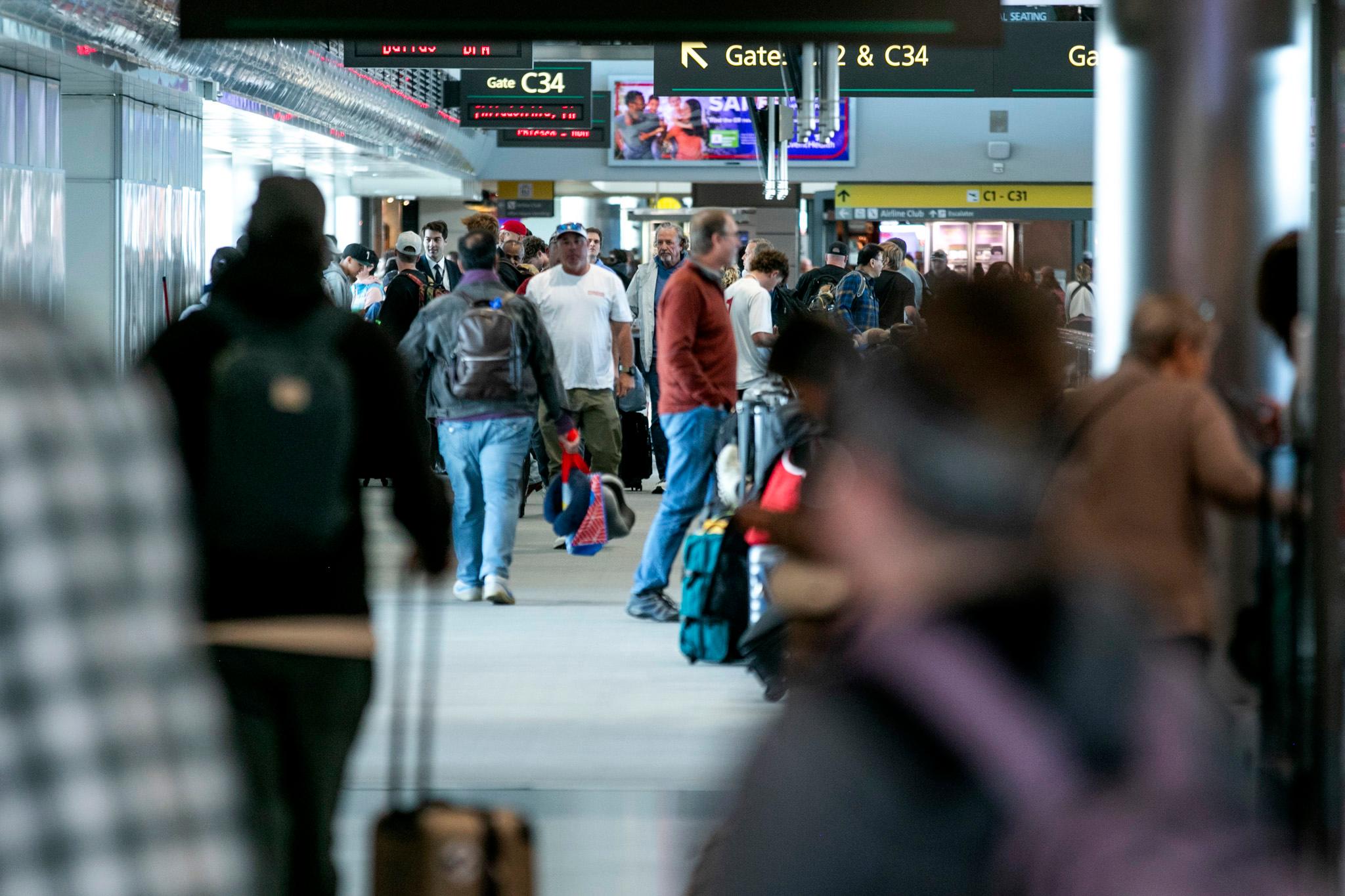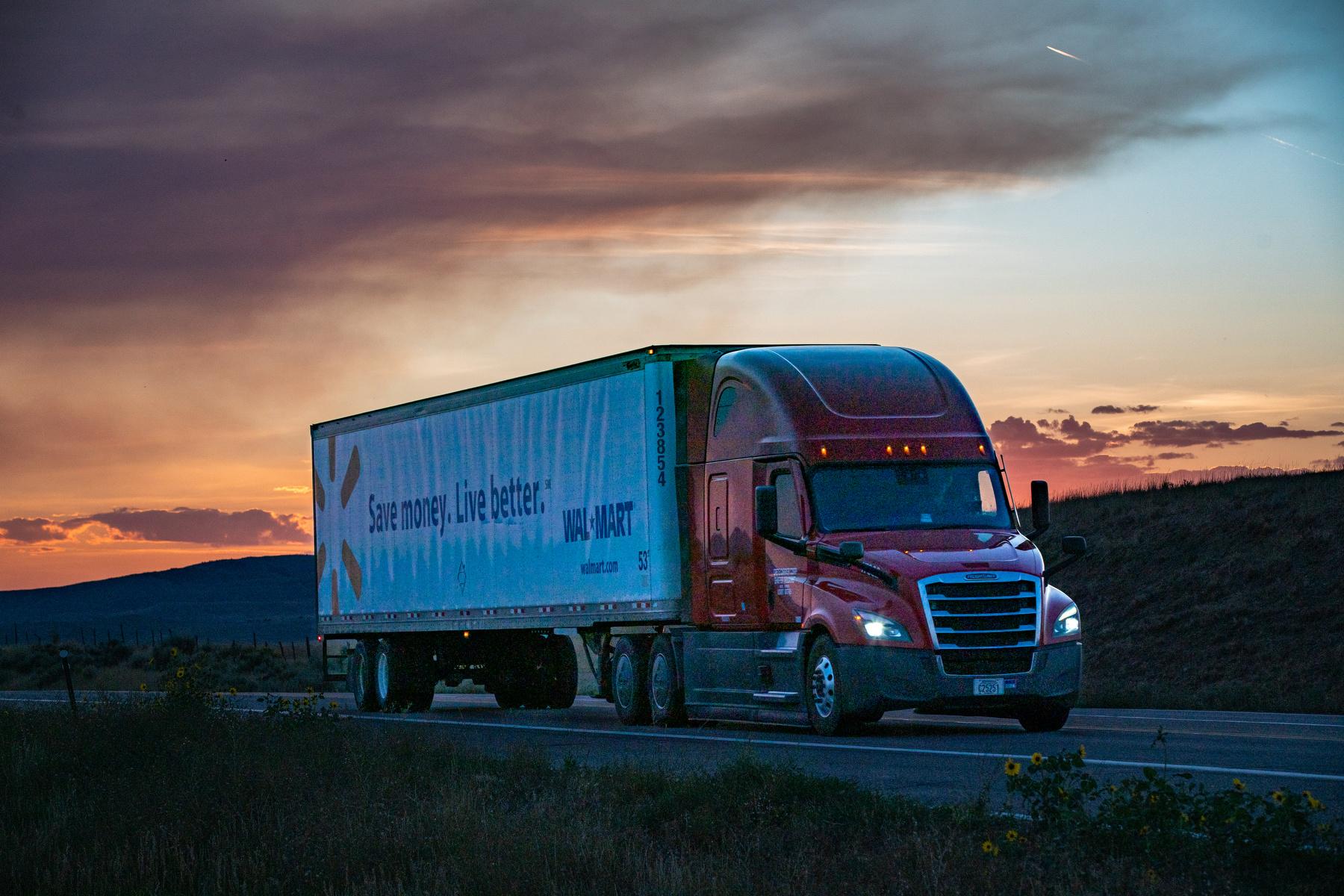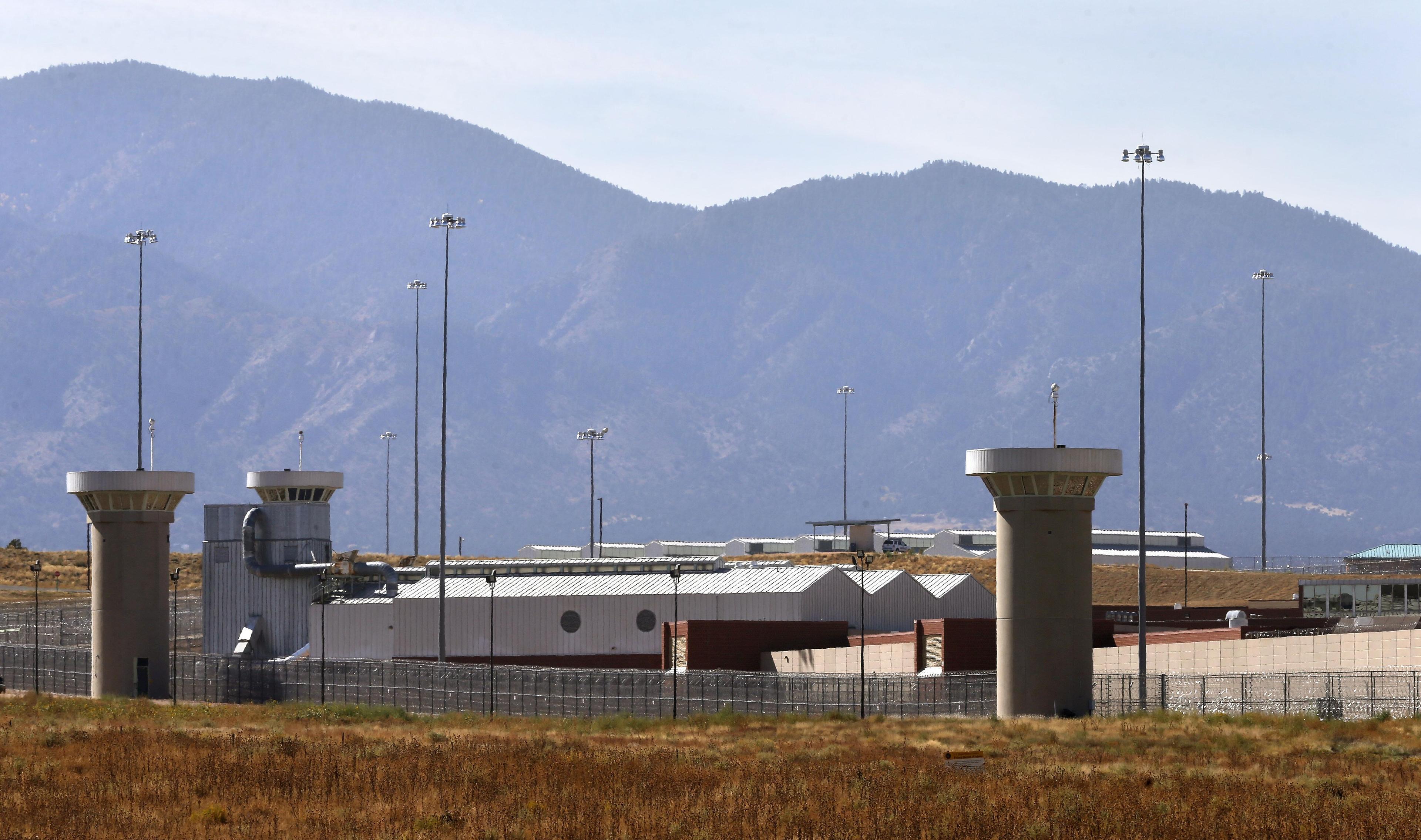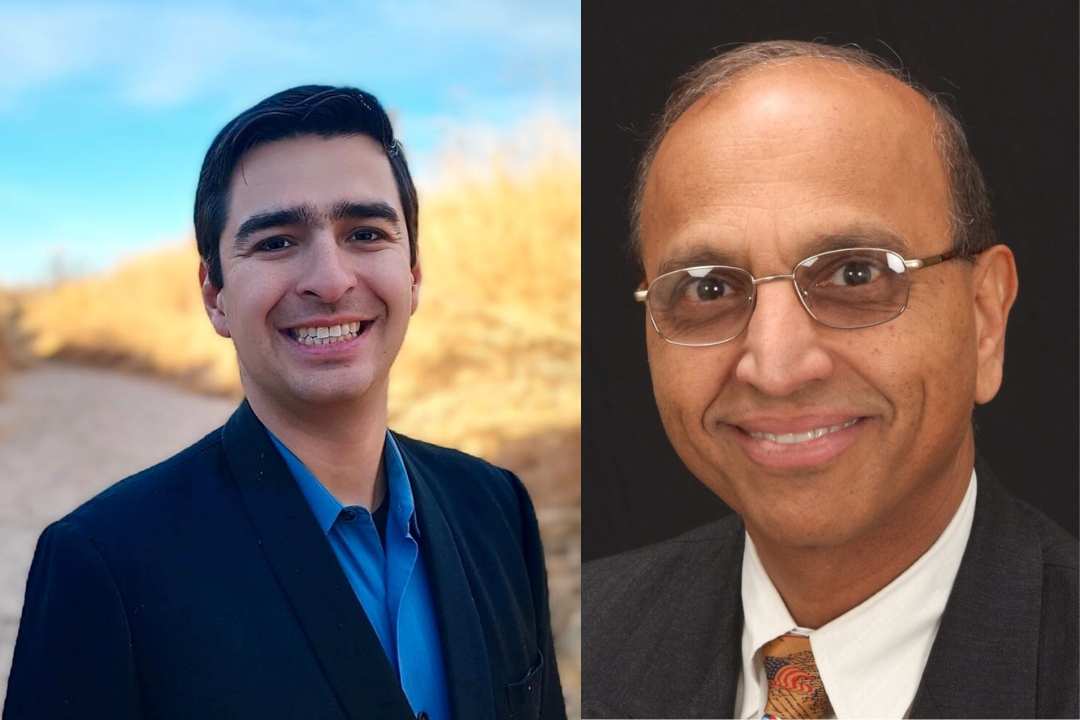
On a warm June evening at a rural property outside of Brighton, Gabe Evans reminded a few dozen campaign volunteers what was at stake in the 8th Congressional District, which could be home to one of the country’s most competitive elections this fall.
“Do you realize that here in the state of Colorado, Republicans have not won a major contested race since 2014?” he asked the crowd, delivering his speech from the back porch of a ranch home near the South Platte River. “We can send a message, both at the state level and also at the federal level, that Coloradans are ready for a change.”
Evans is one of two Republican candidates — along with Janak Joshi — running in the primary election for the district. On June 25, Republican and unaffiliated voters will decide which one to send on to this November’s general election.
It’s a race with national implications, and one that highlights the widening rifts within Colorado’s own Republican Party.
Evans is a former Army helicopter pilot and Arvada police officer, and was elected to the state legislature in 2022. He has raised 15 times more money than Joshit and has endorsements from both sides of the Republican Party. He has simultaneously secured the backing of both former President Donald Trump and anti-Trump conservatives like Americans for Prosperity, or AFP.
“Tell me how many AFP and Donald Trump endorsed candidates are out there. There's not a lot,” Evans said.
His opponent is Janak Joshi, a retired doctor and medical practice owner who surrendered his medical license and was later elected to three terms in the state House, representing a Colorado Springs district. In advertisements and debates, Joshi portrays himself as the real conservative in the race. He says he is the “only Pro-Trump, America First Republican” running, despite Trump’s endorsement of the other guy.
“Our country is sick, because weak Republicans compromise on border security and spending,” proclaims a campaign ad. Joshi also has criticized Evans for getting help from Trump opponents like AFP, whom he accuses of weakening the former president’s reelection chances.
“Why would you take money from somebody who is for Biden?” Joshi asked at a debate.
Evans has responded by portraying himself as a bridge-builder for the suburban and rural communities of the 8th, hammering a message about schools, border security and the cost of living.
“I'm going to work as a big tent Republican, with anyone who believes in those same broad principles,” he said.
There’s one notable group that is not in the tent with Evans in this race: the state Republican Party and its leader, Dave Williams. The party this year took the unusual step of endorsing candidates in the primaries. Evans refused to complete the required questionnaire, so the party is backing Joshi.
“While the Party would ultimately support Gabe Evans if he wins the Republican Primary election, his refusal to disclose key issue positions and any possible history of criminal or ethics violations, plus his ties to the fake conservative organization Americans for Prosperity … make him much more likely to be defeated by the Democrats,” the Colorado GOP wrote in a press release.
The state party also criticized Evans for his statehouse record — including his vote to appoint Democrat Julie McCluskie as the House Speaker. Although some Republicans tried to mount a challenge, it’s customary in Colorado politics for all members of both parties to join together in electing a Speaker from the majority.
Meanwhile, Evans has hit back against state party chair Dave Williams. He signed a letter calling for the potential replacement of Williams over his meddling in these primaries and the party’s recent anti-LGBTQ Pride messaging.
Evans argues that he also has grassroots support, pointing to his commanding victory at the state assembly. He currently runs a family farm in Weld County, where he lives with his wife and two young sons. He talks often about how he was homeschooled and how his children have been educated at home and in charter and public schools.
How Joshi and Evans talk about the issues
When they talk about their plans should they be elected to Congress, both candidates cut right, but Joshi takes more absolute positions — he supports banning abortion nationally, repealing the Affordable Care Act and deporting all undocumented immigrants.
“We probably need to deport all these people who came in irregularly, they jumped the borders, they jumped the lines,” he said.
On these issues, Evans doesn’t go as far. He describes himself as pro-life, but says that he wouldn’t vote for a national abortion ban.
“We have to have the ability to best protect all life. And you don't do that by having just these absolute black and white lines, because that's not how life is,” Evans said in an interview.
On immigration, Evans calls for “securing the border” but not mass deportation.
“We need to let our law enforcement prioritize those folks who are illegally in our country that are committing other crimes,” Evans said.
Both men speak frequently about their own families’ immigration stories. Joshi is a naturalized U.S. citizen who emigrated from India some 50 years ago, while Evans’ said his grandfather was a Mexican immigrant who won U.S. citizenship through military service in World War II.
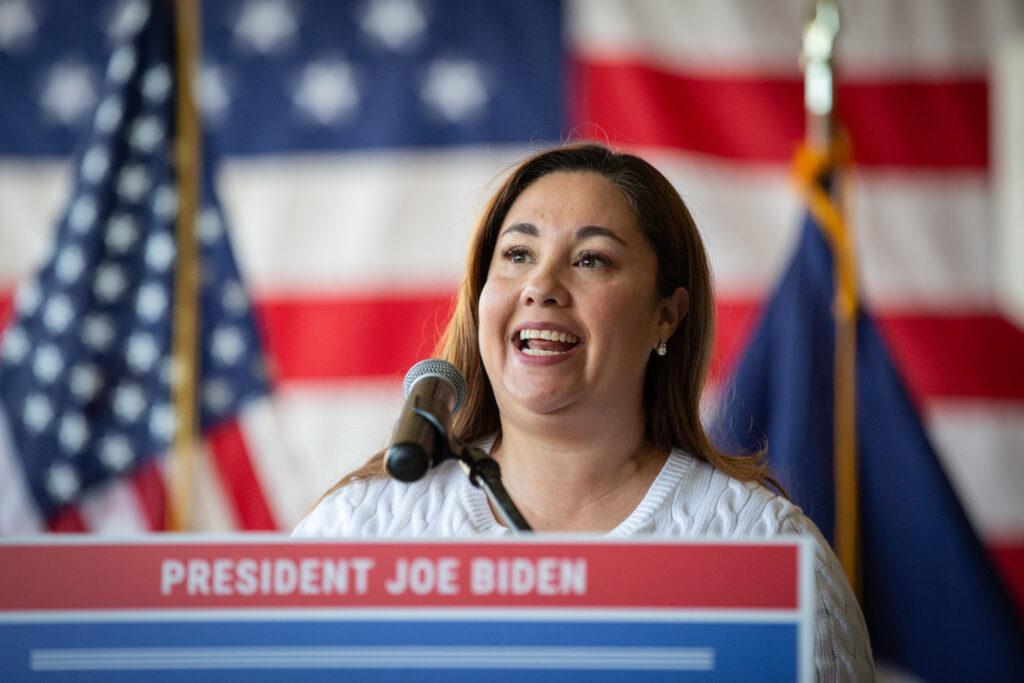
The two candidates are also focused on another top issue for Colorado voters — the economy and the cost of living. In an earlier interview, Joshi said that he would cut back on federal spending by reducing the “earmarks” that Congress members direct back to their districts.
Evans says that he would cut regulations on oil and gas production, as well as slashing federal spending — naming IRS tax agents as one target.
Both candidates previously served in the state House, though at different times, and each drew on his professional background to guide his legislative priorities. Joshi focused on health-related bills in his three terms, but only actually passed a handful. Many of his measures were fruitless attempts to repeal Democratic-backed health care laws or cut fees and taxes.
Evans has served two years, and has focused largely on bipartisan bills, passing about the same number in two years as Joshi did in six. His legislation has covered topics like courts, crime and child welfare.
It’s unclear just how close this race will be. After some early ad spending and debate appearances, the Joshi campaign has been relatively quiet lately and hasn’t published any recent campaign events.
Meanwhile, at the Evans campaign barbeque, supporters like Pastor Mark Morris were already looking past the primary and toward the general — where they’re hoping for a Republican win at last.
“I think he, of course, is going to win the primary easily,” Morris said. “And then the real hard work will begin.”
Ballots have already been mailed to voters. Polls close 7 p.m., Tuesday, June 25.

